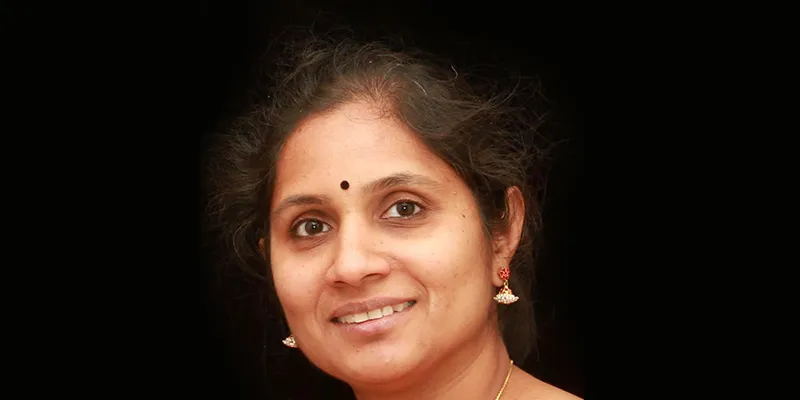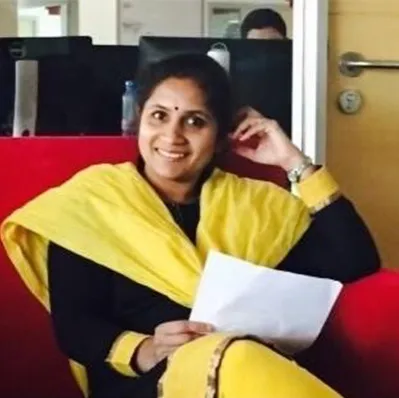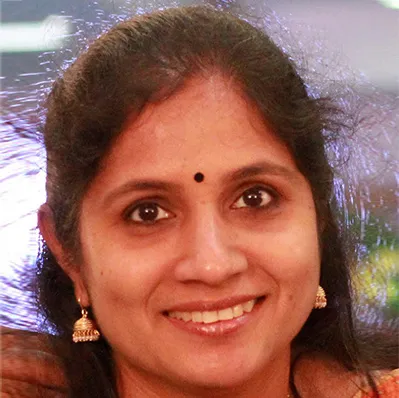[Women in Tech] At Microsoft, Subha Sateesh is driving change to empower people with disabilities
Subha Sateesh, Program Manager in the Microsoft Office Group, is part of the team working towards a complex diagramming application (Visio) accessible to all, including people with disabilities, with a mission to empower everyone.

Women in technology are exerting more influence and leading the way in pioneering research and application processes in diverse industries.
From artificial intelligence, machine learning, and augmented reality to virtual reality and applications that drive change, women trailblazers are leading tech innovation at different levels.
Subha Sateesh, Program Manager at the Microsoft Office Group, uses tech to empower the disabled and make a difference in their lives. Her career at Microsoft has, over the last 15 years, spanned diverse roles and technologies.
Subha is currently driving changes to make a complex diagramming application (Visio) accessible to all, including people with disabilities, with a mission to empower everyone. A large part of her work is focused on enriching reading experiences for the visually impaired, which is also a personal passion she first realised while “writing” exams for her visually impaired friend during her college years.
This aspect of her work involves identifying, analysing, and mitigating several factors in the accessibility space, in addition to helping develop accessibility technologies and tools and infusing AI.
In a conversation with YourStory, Subha talks of her journey in Microsoft, her contribution to Microsoft products, encouraging women in technology, and the challenges they face.
YS: Can you tell us about your journey in Microsoft so far? How have you made an impact?

SS: I have had a very interesting and exciting journey in Microsoft – about 12 years in the US and over four years in India. Having started with Microsoft Word 2000, I contributed towards the first three releases of Microsoft OneNote. In addition to being part of a great team, this experience with OneNote gave me deep insights into the intricacies of creating a new product and developing it further. Since then, contributing to many Microsoft products that enable people to be more productive has been impactful and fulfilling, especially working on accessibility features designed to help people with disabilities use technology more easily. I also use my personal experience, and what I have seen around me, to actively mentor the newer generation of women entering our industry.
YS: Do you think women in technology in India are a rare breed?
SS: Women representation in technology is low all around the world, including India. That said, I sense that the women working in India (and not just in technology) face additional challenges as they are being asked to perform a complex balancing act of advancing their careers while still conforming to, and meeting the expectations of, age-old societal norms.
YS: What more can be done to attract women to careers in technology?
SS: Both men and women in senior positions should take a more active role in contributing to company policies that provide flexibility to women to continue their careers through various life events. Women who have been successful in technology should spend more time in sharing their life experiences and spread positivity about career growth. Mentoring via the WISE (Women in Software Engineering) program by Microsoft is another great way to inspire and create awareness among university students to form careers in technology. Also, more companies should realise the great benefit of well-rounded perspectives of men and women - from boardrooms to product development groups. Above all, promoting empathy by the organisation at all levels is key to attracting and retaining women in technology.
YS: How can women better their lives with the help of technology?
SS: Access to information levels the playing field for everyone. With the help of technology today, women in all parts of the country can access a lot of educational tools that were not easily available to them before. With information, they are now more aware of their rights in society, and willing to fight for them. Also, career-minded women are able to find and connect with other such women more easily, creating a large multiplicative impact. Having access to health information through reputed global resources is also a great boon to take care of their health and help plan their families.
YS: Why do you think hackathons don’t attract many women?

SS: Women do participate in hackathons, but it will be nice to see their participation rate go up further. At Microsoft, we have seen a high rate of participation from women in the hackathons and, in fact, I am proud to share that I was part of the team that won the “Most technically challenging hack” award in 2017. We could look at a fundamentally different approach that gets the same results but reduces working continuously over long hours in one shot, to help more women participate in hackathons.
YS: Do women face sexism as part of tech teams?
SS: Comparing my own experience with my women friends from other technology companies, I think Microsoft is culturally one of the better places to work in this regard. But generally speaking, as a phenomenon, unconscious bias about women’s skills in math and engineering, cultivated over centuries in largely patriarchal societies, can exist. More successful women and a generally progressive society are the answers to eliminate it altogether.
YS: What are the challenges women in tech face?
SS: One of the bigger challenges I see is not necessarily in women joining a technology workforce, but continuing in it. From an organisation perspective, it is critical that women continue to be supported and encouraged as they take breaks to have children, or take care of their health. Human biology should be glorified, not undermined. Seeking and establishing a strong support system of the right mentors and colleagues at work, and at home, will go a long way in helping women overcome this challenge.
YS: Can you share any interesting incidents/anecdotes as part of your career?
SS: A part of my recent work at Microsoft focused on enriching the reading experiences for the visually impaired, which is also a personal passion I first realised while “writing” exams for my visually impaired friend during my college years. I am grateful to be part of the development of such assistive technologies that are also aligned with my personal passion, and contribute towards a more inclusive environment for all.


![[Women in Tech] At Microsoft, Subha Sateesh is driving change to empower people with disabilities](https://images.yourstory.com/cs/wordpress/2018/03/feature_image.jpg?mode=crop&crop=faces&ar=2%3A1&format=auto&w=1920&q=75)




